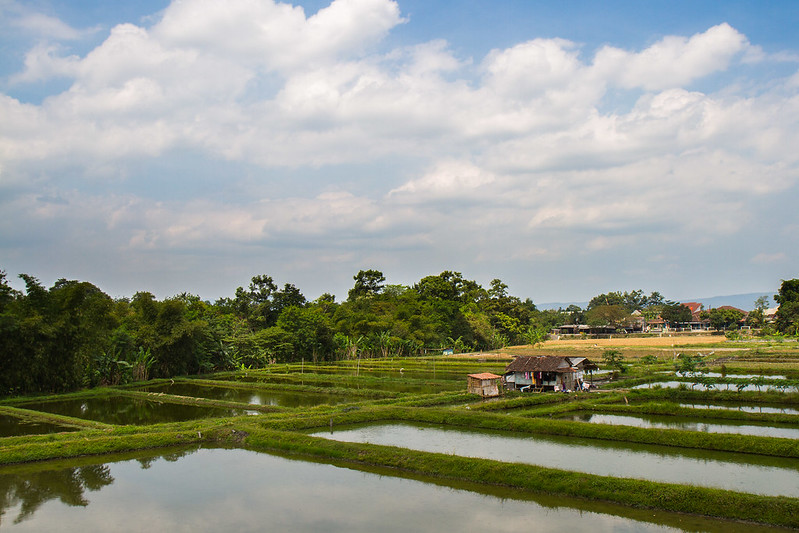The Impact of Tourism in Indonesia on Poverty
 The tourism economy in Indonesia provides jobs, increases funding for other programs, and improves the overall economy of the nation. The country attracts international travelers, companies interested in profit, and people who hope to earn a living in this industry. The expansion of tourism positively affects the citizens and their livelihoods. This article examines the impact on tourism in Indonesia on poverty.
The tourism economy in Indonesia provides jobs, increases funding for other programs, and improves the overall economy of the nation. The country attracts international travelers, companies interested in profit, and people who hope to earn a living in this industry. The expansion of tourism positively affects the citizens and their livelihoods. This article examines the impact on tourism in Indonesia on poverty.
Concerns
The onset of the coronavirus pandemic brought on several strict government lockdowns to reduce the spread of infection. With borders closed throughout most of 2020, international travel to Indonesia dropped 83%. The isolation impacted tourism in Indonesia significantly. Bali and Java’s reliance on travelers during the prolonged era impacted thousands of jobs in the industry. The unemployment rate increased nearly 2% from 2019 to 7.1% in 2023. The reopening of borders and commerce within the South Asian nation returned travel, trade, and unemployment to pre-pandemic levels.
Jobs and Growth
According to a study by Tien Pham and Anda Nugroho published in 2022, tourism provides countries with limited natural resources with job opportunities and improves international trade relations. In 2018, the tourism sector accounted for 5.8% of Indonesia’s total gross domestic product. Bali remains the most popular destination in the country, accounting for more than 40% of Indonesia’s total international tourism revenue.
The revenue from tourism has advanced economic growth and improved the standard of living. The positive economic growth in the country led to significant decreases in poverty from 24% in 1998 to 9.2% in 2019, according to Pham and Nugroho.
In 2018, the Asian Infrastructure Investment Bank, in conjunction with the Indonesian government, approved nearly $250 million for a large tourist attraction based in Mandalika, in the province of West Nusa Tenggara, Indonesia. This large project will draw in tourists and will create stable jobs and income and a better quality of life for Indonesians in the area. Several advocates voiced concerns regarding the environmental and humanitarian impact of this endeavor, however, both the AIIB and the government claim the project will not negatively affect the region.
Wage Increases
According to a 2020 study by Arif Haryana published in the Indonesian Journal of Development Planning, 95% of businesses in the tourism sector in Indonesia reported an increase in profits and sales that correlated with the rise in international visitors. This increase in work provides more families with the money they need to survive. In the study, over 1,250 workers participated in the survey and 19% worked in tourism-related jobs. Nearly 85% of employees claimed to receive under 2 million Rupiah a month, or $130 USD.
Although the average monthly wage mirrors other industries in Indonesia, many workers also demand a wage increase for their taxing jobs. With 5.2 million tourists in 2022, the government hopes to create an additional 4 million jobs by 2024 to accommodate the surging visitors, with no comment about pay raises.
Environmental concerns
The expansion of tourism in Indonesia has also brought negative impacts on the environment. Unsustainable magazine highlights that “Certain areas simply aren’t equipped to handle the sheer volume of people, leading to increased pollution, traffic congestion, and unsustainable practices. It’s heartbreaking to see natural wonders like the beaches in Uluwatu and national parks in northern Bali overrun with tourists, leaving trails of litter and damage in their wake. The challenge now is finding ways to balance the economic benefits of tourism with the need to preserve these destinations for future generations to enjoy.”
Balinese Governor Wayan Koster announced in 2023 a one-time payment from foreign tourists of $10 to enter the island. This fee system, set to begin in 2024, aims to draw in “high-quality tourists” who will respect both the culture and environment. The fees will go toward preserving culture and the environment and public works such as bridges and roads.
The impact of tourism in Indonesia on poverty cannot be understated. International interest in the country boosts the economy, increases job opportunities and allows for the promotion of their customs.
– Abigail Dudley
Photo: Flickr
